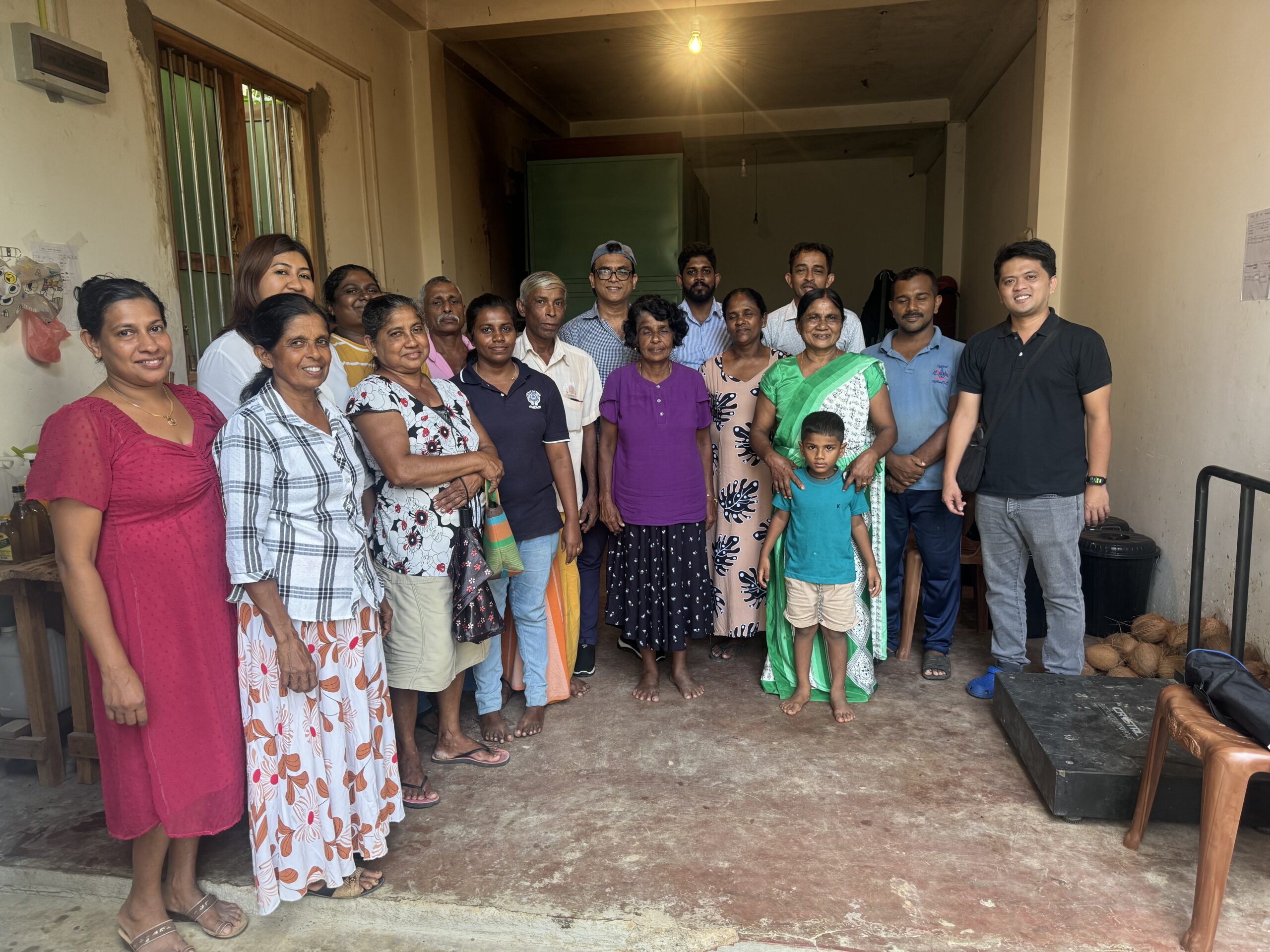Located in Julampitiya, Southern Province, Sri Lanka, the Julampitiya Sanasa Society is a thriving farmers’ cooperative specializing in pepper production. With a membership of 46 individuals—31 of whom are women and 12 are youth—the cooperative is part of the larger SANASA society network, which boasts 400 members. The cooperative primarily focuses on pepper while also producing coconut oil, turmeric, and other spices.
Previously, the cooperative relied on sun-drying methods to process and sell pepper in local markets. However, in March 2024, they acquired a dehydrator/dryer machine through the APFP-FO4A program, a crucial investment that transformed their operations. With this new equipment, the cooperative began purchasing raw pepper from its members and nearby farmers, processing it into high-quality dried pepper more efficiently. Additionally, the dryer is used for coconut processing (copra) and is rented out to generate extra income. The cooperative has further expanded its scope by processing rice flour and milling rice and millet, diversifying its product offerings.
Stock management has also improved, allowing the cooperative to store dried pepper and sell it in batches when market prices are most favorable, particularly between May and July. This strategic approach maximizes their profitability and ensures better returns for members.
The Julampitiya Sanasa Society has established a contract with Sanasa Green Mart, ensuring a steady market for its pepper powder and spice products. It also supplies local retail shops and is actively exploring opportunities in wholesale and export markets to expand its reach.
Committed to sustainable agriculture, the cooperative avoids the use of chemical pesticides, instead employing mulching techniques and natural fertilizers to enhance soil fertility. Government agriculture instructors provide ongoing support, helping members adopt best practices in organic farming.
Women play a vital role in both production and leadership within the cooperative, making it a proactive and inclusive organization. To further strengthen its legal and institutional framework, the cooperative is in the final stages of registration with the Cooperative Department, a milestone that will enhance its operational credibility and future growth.
Since acquiring the dryer machine, the cooperative has significantly increased production and sales:
- First season (six months): 1,500 kilograms of dried pepper
- Second season: 2,000 kilograms of dried pepper
- Total sales revenue: LKR 60 lakhs (USD 20,450)
- Profit generated: LKR 10 lakhs (USD 3,400)
- Additional income from machine rentals: LKR 9 lakhs over three months, charging 25 Sri Lankan rupees per kilogram for machine use
A comparison of sales before and after acquiring the dryer machine highlights the cooperative’s impressive progress:
- Before the investment: Sales revenue was LKR 27 lakhs (USD 9,200), with a profit of LKR 2 lakhs (USD 680)
- After the investment: Sales revenue increased to LKR 60 lakhs (USD 20,450), with a profit of LKR 10 lakhs (USD 3,400)
The cooperative has introduced several advantages for its members and the broader community:
- Lower transport costs for members due to local processing
- Improved processing efficiency, with machine drying completing in 16 hours compared to 4-5 days for sun drying
- Consistently high-quality products, enhancing the cooperative’s reputation
- Access to a unique resource, as the dryer machine is the only one available in the area, benefiting 200 indirect beneficiaries across 15 villages
Despite these successes, the cooperative faces several challenges that need to be addressed:
- Lack of a dedicated transport vehicle, limiting efficiency in raw material procurement and product distribution
- Limited market exposure, with most sales confined to local and retail markets
- Need for improved packaging, to meet higher market standards and expand to premium and export markets
With its strong foundation in sustainable agriculture, innovative processing techniques, and inclusive membership, the Julampitiya SANASA Society is well-positioned for continued growth. Addressing its logistical and market-related challenges will be key to unlocking its full potential in the spice industry.
The Julampitiya Sanasa Society is one of the partner organizations benefitting from the APFP-FO4A program, which is implemented in Sri Lanka by SANASA International.
The Asia Pacific Farmers’ Programme (APFP)- Support to Farmers’ Organizations for Asia (FO4A) aims to contribute to an enabling environment for rural poverty reduction, through instrumental support to rural smallholders and their organizations at national, sub-regional, and regional levels in Asia and the Pacific. The objective is that by the end of the program, farmer organizations are professionally capacitated to provide sustainable demand-driven (business and technical) services to their members and engage in effective policy dialogue for the improved livelihoods and incomes of smallholder farmers/producers in Asia and the Pacific. APFP-FO4A is implemented in Cambodia, Indonesia, Laos, Myanmar, Philippines, Thailand, Vietnam, Bangladesh, India, Nepal, Pakistan, Sri Lanka, Mongolia, and China. APFP-FO4A benefits around 25 million individuals–of which 4.5 million are women and 4 million are youth. APFP is financed by the International Fund for Agricultural Development (IFAD) and FO4A is co-financed by the European Union (EU) and IFAD.
Click here to view more photos




Comments are closed